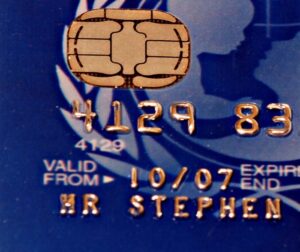How do you divide stock options under North Carolina Divorce Law? Stock options can be…
How do you divide credit card debt in a divorce?
How does debt incurred during your marriage factor into North Carolina's Equitable Distribution Law?
If you find yourself facing a separation or divorce and are forced to deal with dividing the family credit cards, you must be very careful and structure a Divorce Settlement that is not only fair but will also be effective in protecting your credit.
As a Raleigh Family Law Attorney for almost 15 years, I have always counseled my clients to consider the following suggestions when dividing up unsecured marital debt:
- Keep All Debt That is in Your Name. From a practical standpoint, you should keep all credit cards and debts in your own name to ensure that the debts are paid and your credit is protected. Unfortunately there is no perfect way to enforce a Divorce Settlement requiring your spouse to pay debts on time and once the debts are paid late or in default, the damage is already done. While it is certainly true you can enforce the terms of a properly drafted Separation Agreement and Property Settlement or Court Order requiring your spouse to pay the debt, it will be too late to keep the horse in the barn so to speak. The damage to your credit will already be done and it will take time to fix it. Yes, we can probably punish your Spouse in Court but that will not fix your credit, which is a tremendous asset. It is much better to keep that debt for yourself and trade off another asset to equalize the division of assets.
- Pay off Joint Credit Cards as Part of Settlement. When there is substantial unsecured Marital Debt on joint accounts or credit cards, try to have these debts paid off as part of any settlement. Use marital funds whenever possible to do so. For example, if there is money in savings to be divided, use those funds to pay off the credit cards and marital debt as opposed to dividing it. If you have little in the way of liquid assets to divide, perhaps you have an open equity line which money could be drawn from to pay off any joint credit cards or at least to equalize the credit card debt. This may shift the balance of the division of assets slightly, but you can probably find some other asset to trade to balance it out. If you are selling the Marital Home (and it has equity) as part of the settlement, require that the proceeds from the sale be used to pay off joint debt. If you must, take the joint debt on as your responsibility and offset it with another asset to make the division equal. The key is to avoid having to trust your ex-spouse to pay your debts that could affect your credit.
- Use Existing Credit to Pay off Joint Credit. Cash advance checks or balance transfer offers from your credit card company are a great way to protect yourself from debt exposure in a divorce. For example, if you you have already equitably divided all of the Marital Assets and you are left with credit cards to divide and $20,000 worth are in your name, while $10,000 worth are in your spouse's name, you could either take an asset worth $10,000 in order to equalize the division, or your spouse could write you a cash advance check or undertake a balance transfer of $5,000 in order to equalize the debt allocation to $15,000 each. This way each of you would still be paying credit cards in your own name and would walk away with an equal share of unsecured marital debt. At that point, who cares if your spouse pays the bill on time. It will no longer affect your credit.
- Dealing With Divorce When Most or All Debt is in Your Name. In this scenario, let us assume you have $30,000 worth of marital credit cards, all in your name. Your spouse has little or no borrowing power and cannot take on any debt in their own name. There is no way you should just take on all of the marital debt when $15,000 of it should belong to your spouse. The first option you have is to look at the other assets. In all of these scenarios we are assuming you have equally divided the marital property. So, if you are taking on more debt, then offset your spouses share with assets. Right now your spouse owes you an $30,0000 or marital assets(remember that 1/2 of the marital assets are already yours) over the value of her assets. In other words, if you have valued your furniture, retirement, cars, etc. and the total marital assets are $100,000, then you should receive the first $30,000 of marital assets and then begin dividing 50-50.In the end you should end up with $65,000 of property and your spouse $35,000. Then, when the credit cards are factored in the division will be equalized.
- Formalize Your Settlement. Whatever you do, make certain that you have the benefit of legal advice from an experienced Family divorce lawyer to ensure the agreement is equitable, properly drafted, and enforceable. Even the best thought out settlement will do you no good if it is not enforceable or will not operate in the manner you think it will. Always know exactly what you are signing and consult with a divorce attorney to protect your interests.
Speak to an Experienced Divorce Law Attorney
Our Raleigh divorce attorneys are ready to help you through the difficult process of divorce. Contact a member of our team by calling 919-301-8843 or completing the online contact form below.




